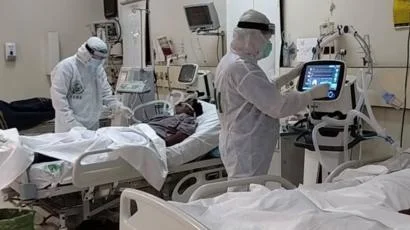Could My Symptoms Be Covid-19?
By Tara Parker-Pope and
If you have a symptom that might be Covid-19, doctors say you should isolate until you can be tested. Most patients will recover on their own within a few weeks.
It’s a good idea to monitor oxygen levels at home with a pulse oximeter. Pay close attention to symptoms during days five to 10 of the illness, when oxygen levels may drop to dangerously low levels.
Seek medical care at any time if you experience trouble breathing, any concerning symptom or take a turn for the worse.
From a sniffle or cough that feels like allergies to severe body aches and crippling fatigue, the symptoms of coronavirus can be unpredictable from head to toe. Read more about the many symptoms of Covid-19 and join the conversation.
















0 Comments
if you have any issue let me know plz